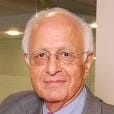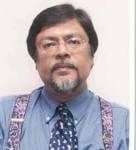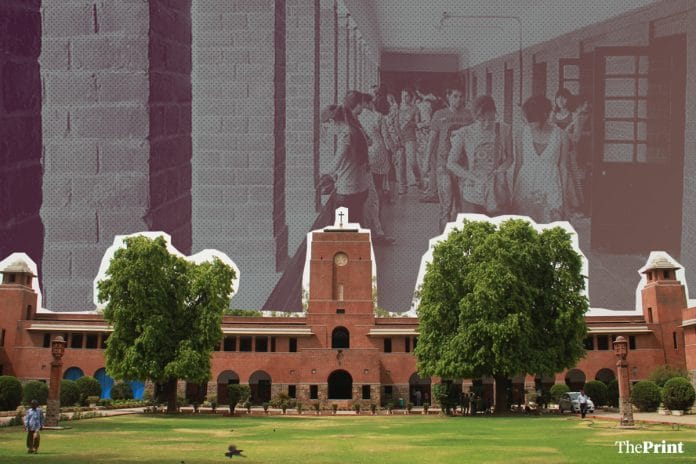The famed St. Stephen’s College in Delhi University is discussing a proposal to start a degree course in theology. The discipline is not taught in any mainstream college or university except the Aligarh Muslim University, which teaches Shia theology.
Critics say that such a move signals a deviation from the institution’s secular ethos.
ThePrint asks- St Stephen’s, DU may begin theology dept: Smart financial move or is it becoming a seminary?
St. Stephen’s must ensure the ethos of college remains secular, not sectarian
 Mani Shankar Aiyar
Mani Shankar Aiyar
Former cabinet minister, and former diplomat
St. Stephen’s has always been a bastion of secular thought. Begun by Christian missionaries, and despite the requirement that the principal should always be a Christian, the college has managed to create an environment conducive to free thought. St. Stephen’s has, over the years, projected the best of Christianity to opinion-makers in our country.
However, if the college replaces the philosophy department with one that teaches only Christian theology, it will not only deviate from the secular tradition, but this will also be an extremely regressive step.
When I attended St. Stephen’s, they used to have a Bible class. Now, one could decide whether or not s/he wished to attend it. Those who didn’t choose the Bible class, could attend a morals class instead. This, I religiously bunked. That was the beauty of St. Stephen’s. Those who wished to find comfort in religion, could find it there. Others could look elsewhere for the solace they sought.
It is worth noting that most modern day laws and everyday morality is, in one way or another, derived from religion. If the college introduces a comparative religion department as a supplement to the philosophy department, it may help students better understand society.
To shut the philosophy department in favour of a theology department would be counter-productive. That would mean that all non-theistic philosophers and their views would never be studied. By this logic, the course would eliminate the likes of Gautam Buddha and Charvakas. Moreover, if the department is inaccessible to over 50 per cent of the student population of the college, then I fear my classmate Arun Shourie’s words will echo across the board – “Christian missionaries are harvesting souls in India”.
In the absence of a detailed notification, all of this is mere conjecture. St. Stephen’s would do well to be wary when it comes to such a decision. They must ensure that the ethos of the college remains secular, not sectarian.
Read more: St Stephen’s College to head the list as govt pushes to grant autonomy to 130 institutions
St. Stephen’s has been a shining example of what India must be
 Arun Maira
Arun Maira
Consultant, former member of the Planning Commission of India, and former president, Students’ Union, St. Stephens
I believe every community in India, whether a minority or the majority, must have the freedom to do what it needs to in order to maintain its traditions and celebrate its own identity, so long as it is not harming anyone else and spreading hatred against others.
This is the vision of India that we must all uphold. St. Stephen’s College, although a ‘Christian’ institution, has been a shining example of what India must be. Indeed, Mahatma Gandhi would find friendship and support in St. Stephen’s, from C.F. Andrews and others, in his struggle for India’s freedom from the British.
I studied physics in St. Stephen’s, and I admired teachers of philosophy, like Professor S.K. Bose. They inspired me to take deep interest in many subjects outside my science classrooms, and in sports too.
There seems to be some concern that St. Stephen’s may be closing down its philosophy department and starting a theology department. Although facts are not known yet – whether the philosophy department will indeed be closed, and if so why – motives are being ascribed to the management.
Institutions have many stakeholders. Moreover, institutions – even educational institutions – must remain economically viable to serve society. Therefore, if the management of the St. Stephen’s has to reorganise its departments to respond to its stakeholders and remain viable, it should have the freedom to do so. However, this should not change the very special ethos of St. Stephen’s College that I had benefitted so much from, and the country has too.
Theology course acceptable as supplement, not as replacement
 Chandan Mitra
Chandan Mitra
Former Rajya Sabha MP, and senior journalist
I see nothing wrong with introducing a theology course in St. Stephens. As a minority institution, it is well within their rights to make such a decision. In all probability, the course will teach only Christian theology, but that is to be expected. That, however, is hardly the problem.
What is problematic is the idea of replacing the philosophy department with a theological one. It may be a commercial decision, but I’m not interested in the commerce of it. As of now, they are an aided institution and should have courses that are inclusive, not exclusive.
Philosophy and theology are two very different streams. A theology course as a supplement is acceptable. As a replacement, it will only curtail the wisdom and the scope of teaching. Philosophy includes various thinkers who are not even remotely religious. You can study Karl Marx and Marxism in philosophy, but not as theology.
Such a move will only reinforce the idea that the college is turning orthodox and regressive. They can have both departments if they so choose.
Education of elite and privileged was never the rationale for St. Stephen’s
 Deepak Mukarji
Deepak Mukarji
Theatre actor, Stephanian batch of 1983
Under the autonomy scheme of the government of India – St. Stephen’s College was asked to apply for it in February 2017 – many new courses were contemplated and ideated.
Divinity and comparative study of religion is a well-known course at Cambridge University (UK). And so, it was estimated that there would be some who might be interested in such a course as a later life adventure in India. But given the pressures on Indian youth to get a job, I think, it could never have been a mainstream course since Indian employers may not place any value in it.
However, that argument is neither here nor there since it was never even remotely considered as a replacement for the existing Philosophy course.
The truth lies more in the discomfort with St. Stephen’s hiring Christians in faculty positions. And, sadly religion is being confused with talent and intellectual calibre.
The education of the elite and the privileged was never the rationale for St. Stephen’s College, which has always been a Christian institution with one of its founding objectives being “religious instruction”. This is inscribed on a marble tablet lovingly recreated by alumni and placed at the entrance of the first building St. Stephen’s occupied in Chandni Chowk in the early 1880s.
Article 30 of the Indian Constitution has been upheld by the Supreme Court, allowing minority institutions to manage their own affairs by way of staff recruitment and governance. The beneficiaries have not only been Christians, Sikhs, Muslims and Jains but also linguistic minorities. Minority communities must find ways and means of uplifting themselves in an environment where money can buy you a seat in many institutions around the world.
To decry the efforts of the Christian community and denigrate in any way its contribution to the creation and building of India is an unfortunate commentary on the times.
A course on theology is not what St Stephen’s needs right now
 Prasanto K Roy
Prasanto K Roy
Tech policy and media professional, and co-administrator, St Stephen’s alumni group Laal Sitara
“The galloping Christianisation of St Stephen’s has hurt its image…the authorities want to make it even more of an evangelical ghetto,” wrote Ram Guha.
I wouldn’t quite go so far as to call it an ‘evangelical ghetto’, but could St Stephen’s be headed there?
As a 1980s Stephanian deeply engaged with College, as we alumni fondly call it, with a capital ‘C’, I shudder at any hint of a shift down that slippery slope. I’m not convinced it’s happening. Friends at College assure me there is no move to replace the subject philosophy but to supplement the courses with a new, additional course on theology as a part of its autonomy plans.
Why theology? While comparative religion is common enough in Western universities, it isn’t what I’d highlight as the big gap in St Stephen’s, to make it a world-class institution—an objective of autonomy.
My second objection to theology is that coupled with the very real demographic shift St Stephen’s has seen—toward a larger number of Christian students as well as faculty, especially from Kerala—it could take the college away from being a top Indian institution to a top minority institution.
St Stephen’s is a minority institution. But it’s also been on top of countless surveys, such as the India Today 2018 survey of top colleges. Not the top Christian college, but the top college in India.
That’s true of many Christian missionary schools and colleges. The missionaries have done wonders for education in India and, no that hasn’t ended up converting Hindus into Christians.
Doing anything to push top-rated minority institutions further down the path of religion is kosher as per their own charter. It deflects them from the path of meritocracy and world-class excellence. And it could move us further toward the polarised India we are seeing in 2018: One comprising Hindus and Muslims and Christians, rather than Indians.
Compiled by Deeksha Bhardwaj, journalist at ThePrint. You can reach her @deekbhardwaj on twitter.







theologies and philosophies need to be thoroughly studied. Ancient Hindu texts, for example, contain immense knowledge that’ll only pay off on intricate dissection. Same with other religious texts. They all should be researched and examined to be better understood.